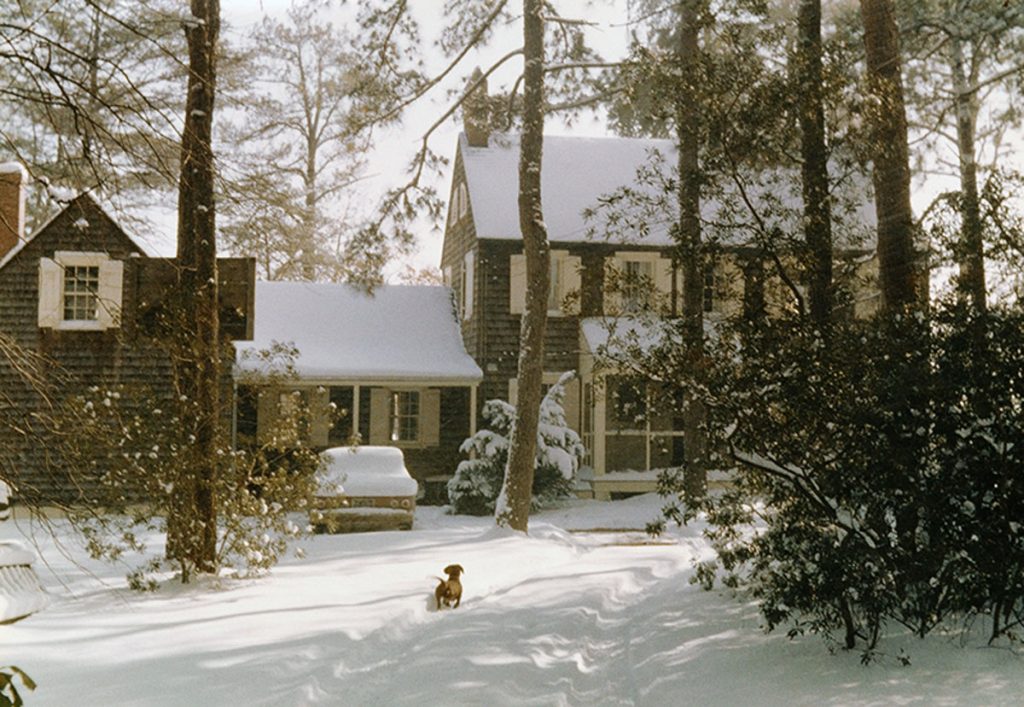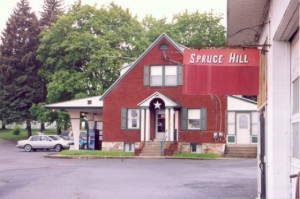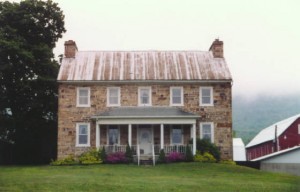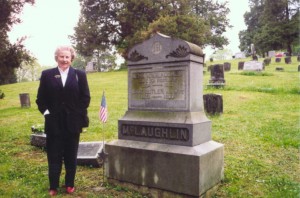
“The past is never dead. It’s not even past.” -William Faulkner
I grew up in Dowell, Maryland, a town so small that you didn’t need a phone very often, because everyone you knew (or needed to know) was within hollering distance. Dowell was just a few houses on one side of a wide creek, a combination post office/general store, and a tavern. We did all of our business in Solomons Island, a town of about 800 people just down the road on the Patuxent River.
Solomons is where my father worked as a marine biologist, where my mother worked as a librarian, and where my brother and I attended elementary school. It’s also where we played Little League and Babe Ruth League baseball, where we went to the movies on weekends (one of the theaters was on a long pier), and where most of my playmates were a 15-minute bike ride away. It didn’t occur to me at the time, but I guess it was not too far short of an idyllic place for a kid to live.
My maternal grandmother, Maggie Belle McLaughlin, also grew up in a rural environment, one she might have regarded nostalgically as equally idyllic. She was born 126 years ago in Spruce Hill, Pennsylvania, a tiny agricultural village in the Tuscarora Valley, about 35 miles northwest of Harrisburg. She lived in a large stone house that was apparently built around the time her father, John A. McLaughlin, was born (1834). Thirty years later, John fought in the Civil War as a member of the 101st Regiment of Pennsylvania volunteers. After the war, he married Hannah Jane Butler and spent the rest of his life working as a farmer.
Maggie McLaughlin attended Marshall Academy (now Marshall University) in Huntington, West Virginia. After living and working in Huntington for a few years, she met and married Maryland native and building contractor Conrad Marene Chaney, and they raised a family (including my mother Mary Elizabeth) in Washington, DC.
My mother loved to talk about her extended family visits to Spruce Hill when she was a little girl. Her Aunt Myrtle lived just across the road from the stone house, and there were several families nearby with kids to play with, a little general store in which to hang out and buy candy, and a church several miles away in a village called Academia. I visited once with my parents around 1950, when I was about nine years old, and all I can remember is that the house was big, and Aunt Myrtle made ice cream in a bucket on the back porch.
In May 2003, my wife and I drove down from our home in Northampton, Massachusetts, to visit my mother in Maryland, and we took her up to Spruce Hill. She hadn’t been there in more than 50 years. Having gone back to several of my family homes over the years, I expected the shock and disappointment that comes with discovering that progress and faded memories have rendered once-familiar things as practically unrecognizable.
Just north of Baltimore, we got off the beltway and headed northwest on a two-lane road that rolled through little valley hamlets, and then to Hanover, a factory town where they make Utz Potato Chips. After we reached Carlisle, a college town that reminded me of Northampton, we wound our way up and down several mountain passes before finally descending into Spruce Hill.
Right away, we found the stone house. It looked exactly like my mother had described it. And right across the street was Aunt Myrtle’s house, though it seemed a lot more modest than I remembered. Along the same road, we passed by Store Lane, aptly named, because that’s where the general store still stands. It was vacant. We even saw the one-room schoolhouse that Maggie Belle McLaughlin attended in the 1880s. It’s now someone’s home.
As we drove around, my mother kept coming up with tantalizing facts and stories I had never heard before. Seeing the green Tuscarora Mountains to the east, and the valley dotted with farms and beautiful stone barns, we could ascertain pretty quickly that there would be no malls or highways to spoil the landscape or the memories. Almost nothing had changed in 50 years. In fact, except for the blacktop roads, the area probably looked much like it did 150 years ago.
Unable to locate the church and cemetery in Academia where my mother’s grandparents are buried, we drove into Port Royal, which is two miles north of Spruce Hill, and asked for directions at the post office. After pointing us in the right direction, the clerk recommended that we stop the following morning at Spruce Hill Lunch, where the locals and old-timers hang out.

After a night at the Super 8 in Lewistown, we pulled up in the parking lot of Spruce Hill Lunch around mid-morning. About a mile north of my grandmother’s stone house, the restaurant is located in a quaint building that looks a little like a train station. It was built in the 1940s, so it was new to my mother. She and my wife went in while I stayed outside and took a few pictures.
When I finally came through the door, my mother was sitting on a stool talking to a lady behind the counter. They were all smiles. At a table nearby, two couples looked on with amazement as they dug into a big breakfast. The lady was owner Carlen McClure, and she seemed to know something about nearly everyone my mother ever knew in Spruce Hill. Almost immediately, Mom was the center of attention, as others joined in the conversation, including whoever happened to walk in and wonder what was going on.
Carlen was, of course, a native, and she was excited to be able to compare notes with my mother about the people and the history of Spruce Hill. After a good 90 minutes of this, she extended an invitation for a return visit (“Come in the fall. It’s beautiful then. I’ll take you on a tour and cook you dinner.”).
Spruce Hill Lunch was full of local color and good cheer. And it was decorated with historic photos and hundreds of curios like old soda bottles and cracker tins. The food was wonderful, especially the homemade pies. Then we headed for the cemetery. As we drove over to Academia, I thought to myself, “In another generation, will this country still have small towns and places like Spruce Hill Lunch where local folks will not only welcome visitors looking for their roots, but will also recognize and remember the family names?”
At the cemetery, we spotted my mother’s family gravesite just a few steps up the hill from where we parked. There we were, my mother and I, standing next to the headstones of my great-grandparents. It seemed appropriate that clouds hung low on the mountains and a light drizzle filled the cool spring air. The McLaughlin family emigrated from Ireland in the 1700s, and there was an eerie Celtic spirit to that memorable day.


“The act of writing is for me often nothing more than the secret or conscious desire to carve words on a tombstone: to the memory of a town forever vanished, to the memory of a childhood in exile, to the memory of all those I loved and who, before I could tell them I loved them, went away.” -Elie Wiesel, from Legends Of Our Time
*Permission to use quote granted by Mr. Wiesel.